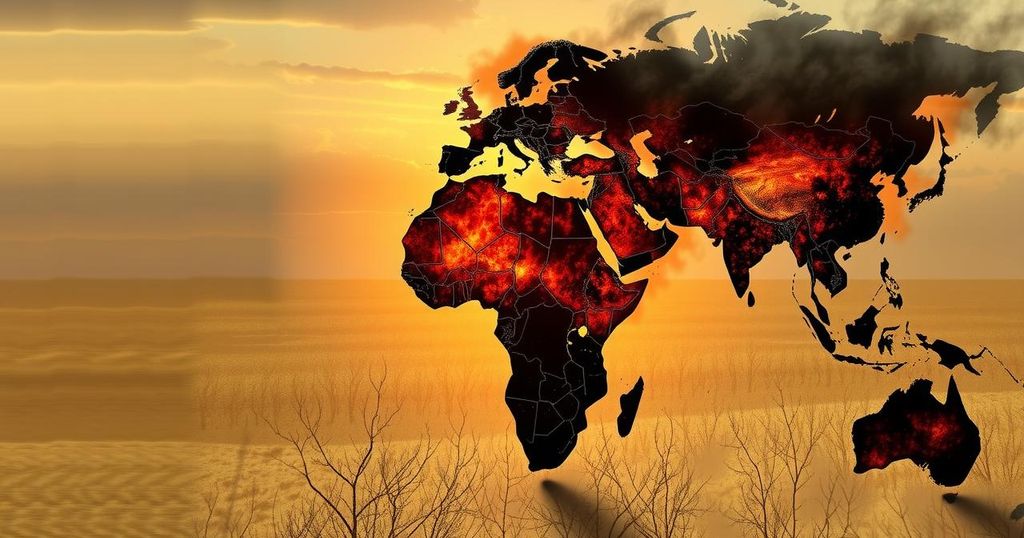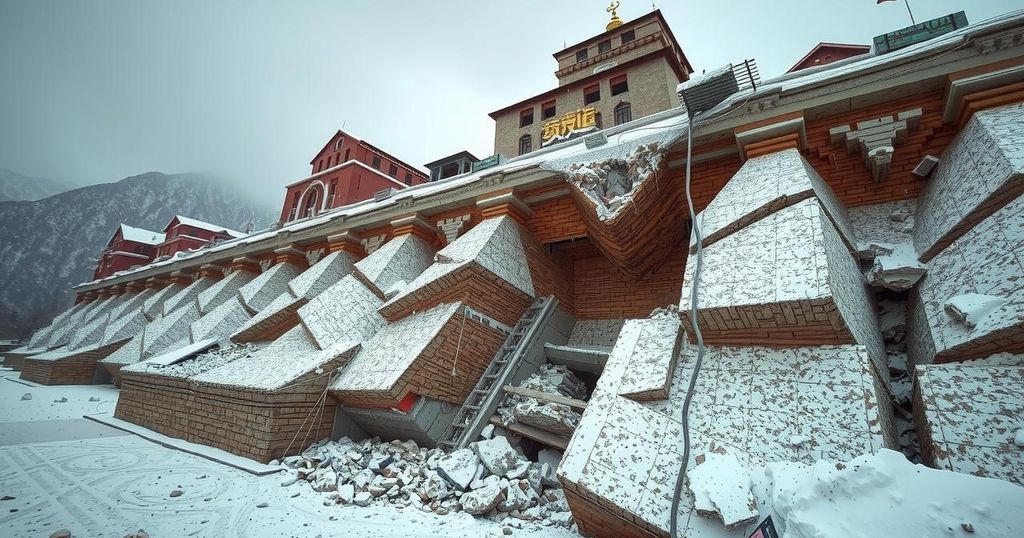Africa Faces Unprecedented Crises: Climate Change, Health, and Conflict in 2024
Africa experienced severe crises in 2024, primarily driven by climate change, health outbreaks, and persistent armed conflicts, leading to widespread displacement and humanitarian emergencies. Many countries, particularly Somalia and Nigeria, faced dire situations with significant loss of life and livelihoods, compelling experts to call for urgent governmental and international action to address these intertwined challenges.
In 2024, Africa encountered unparalleled adversities stemming from climate change, migrant accidents, mpox outbreaks, and ongoing armed conflicts, putting the lives and livelihoods of millions at risk. The continent’s vulnerability became evident through rising temperatures, severe droughts, and devastating floods, exemplified by a catastrophic dam failure in northeastern Nigeria that claimed numerous lives and left hundreds of thousands displaced. Meanwhile, nearly 6.9 million individuals in Somalia found themselves dependent on humanitarian assistance amidst dire conditions, heightened further by the country’s ranking as the most malnourished globally according to the latest Global Hunger Index.
Additionally, African nations faced tragic consequences of migrant crises, with thousands perishing while attempting perilous sea journeys to escape conflicts and economic despair. Data from Caminando Fronteras indicated that 10,457 migrant fatalities occurred in 2024 alone during hazardous migrations toward Europe. This situation necessitates urgent reforms in migration policies to ensure the safety of those seeking refuge.
The region also witnessed a rising incidence of mpox infections, with the World Health Organization labeling it a public health emergency in the Congo. Reports indicated over 1,300 suspected mpox-related deaths across Africa, demanding immediate action to curb the outbreak’s escalation. Amid these public health concerns, Africa continued to confront a multitude of armed conflicts, resulting in thousands of deaths, rampant displacements, and dire economic disruptions. With more than 35 ongoing non-international conflicts across nations like Ethiopia, Mali, and South Sudan, the continent’s stability remains perilous as various armed factions clash with state forces.
Kazeem Olalekan, a noted researcher focusing on security and climate issues, criticized African governments for their inadequate responses to these crises. He remarked on the severe proliferation of small arms, urging political leaders to prioritize the social contract they have with their citizenry, especially in the context of health provision and security investments. In light of these multifaceted challenges, experts advocate that the international community must intensify efforts towards peace building, support conflict resolution initiatives, and address systemic issues through sustainable agricultural practices and community engagement to combat health outbreaks such as mpox.
The content comprehensively discusses the challenges faced by Africa, particularly in 2024, stemming from climate-induced changes, health crises, migration issues, and armed conflicts. These complexities underscore the need for governance that prioritizes public welfare and resilience, as various nations grapple with the ramifications of these intersecting crises, which threaten global stability. The call for international collaboration emphasizes the urgency in addressing root causes and bolstering support mechanisms to enhance livelihoods in the region.
In summary, Africa’s multifaceted crises in 2024 illuminated the urgent need for responsive governance to climate change, health emergencies, and security challenges. The significant loss of life due to natural disasters and armed conflicts signals that immediate actions must be taken to safeguard the well-being of millions. As experts emphasize, both regional leadership and international cooperation are critical to implementing effective strategies for sustainable living and conflict resolution across the continent.
Original Source: www.aa.com.tr




Post Comment